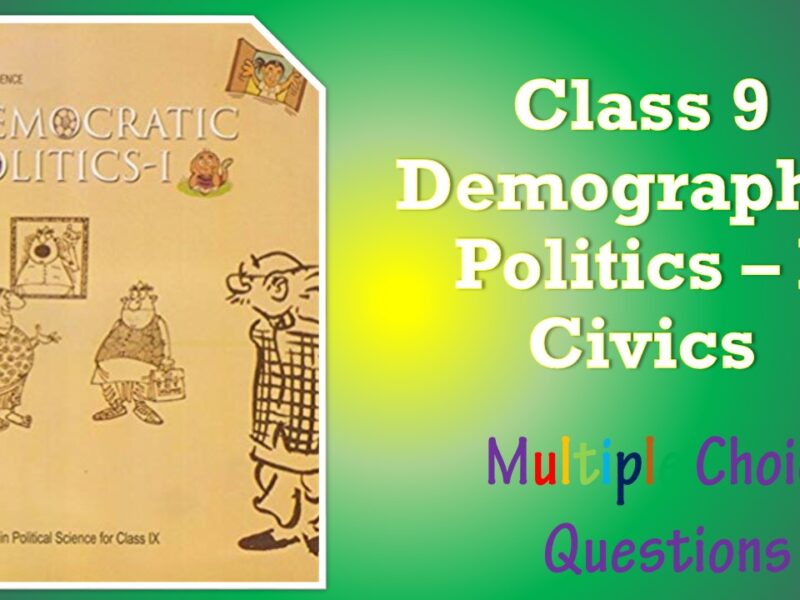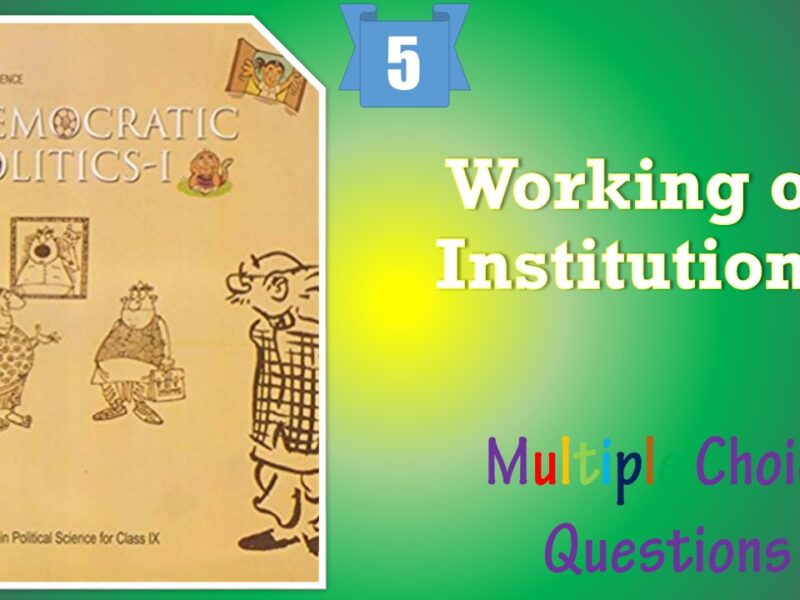CBSE Class 10 Social Science Chapter 3 Democracy and Diversity Multiple Choice Questions with Answers. MCQ Class 10 Civics Democracy and Diversity with Answers was Prepared Based on Latest Exam Pattern. Students can solve NCERT Class 10 Civics Democracy and Diversity MCQs with Answers to know their preparation level.
Students who are searching for NCERT MCQ Questions for Class 10 Civics Democracy and Diversity with Answers are compiled here to get good practice on all fundamentals. Know your preparation level on MCQ Questions for Class 10 Social Science with Answers. You can also verify your answers from our provided MCQ Class 10 Civics Democracy and Diversity with Answers. So, ace up your preparation with MCQ of Chapter 3 Civics Objective Questions.
MCQ Class 10 Civics Democracy and Diversity with Answers - Set - 4
Question 1:
Social divisions affect:
(a) political parties
(b) population of a country
(c) voting in most countries
(d) none of the above
Correct Answer – (C)
Question 2 :
The population of United Kingdom is divided into two major sects of:
(a) Christians and Muslims
(b) Christians and Hindus
(c) Christians and Protestants
(d) none of the above
Correct Answer – (C)
Question 3 :
A society that has similar kinds of people, especially where there are no significant ethnic differences is called:
(а) homogeneous society
(b) heterogeneous society
(c) mixed society
(d) none of the above
Correct Answer – (A)
Question 4 :
Which one of the following statements is not correct about social division?
(a) Too many small divisions are better than a single big division.
(b) Politics is a force of unity when expressions of various kinds of social divisions occur.
(c) It is only in countries like India that we have social divisions.
(d) Assertion of social diversities in a country need not be seen as a source of danger.
Correct Answer – (C)
Question 5 :
Which of these statements regarding factors affecting politics of social divisions are true?
A. It is much easier if the people see that their identities are multiple and are complementary with national identity.
B. If people see their identities in singular and exclusive terms, it becomes very easy to accommodate.
C. It is easier to accommodate demands that are within the constitutional framework and not at the cost of another community.
D. It depends on how the government reacts to demands of different groups.
E. Attempts at forced integration do not sow the seeds of disintegration.
(a) A and B are true.
(b C and B are true.
(c A, B and C are true.
(d) A, C and D are true.
Correct Answer – (D)
MCQ Class 10 Civics Democracy and Diversity with Answers
Question 6 :
Political competitions along religions and ethnic lines led to the disintegration of Yugoslavia into:
(a) five independent countries
(b) six independent countries
(c) seven independent countries
(d) eight independent countries
Correct Answer – (B)
Question 7 :
Democracy involves competition among various:
(a) parties
(b) political parties
(c) groups
(d) castes
Correct Answer – (B)
Question 8 :
Cross-cutting social differences are easier to:
(a) fulfill
(b) accommodate
(c) commit
(d) none of the above
Correct Answer – (C)
Question 9 :
Identify the countries which faced the problem of social divisions.
(a) Belgium, Germany and USA
(b) Belgium, Sri Lanka and U.K.
(c) Sri Lanka, Canada and India
(d) U.K., USA and India
Correct Answer – (B)
Question 10 :
Which of the following statements about social differences in the Netherlands and Northern Ireland are correct?
A. Both Northern Ireland and the Netherlands are predominantly Christian but divided between Catholics and Protestants.
B. In Northern Ireland class and religion overlap each other.
C. Overlapping social differences do not create possibilities of deep social divisions and tensions.
D. In the Netherlands, class and religion tend to cut across each other.
(a) A, B, C and D
(b) A, B and D
(c) C and D
(d) B, C and D
Correct Answer – (B)
- NCERT Solutions Class 10 Civics Chapter 1 : Power Sharing
- NCERT Solutions Class 10 Civics Chapter 2 : Federalism
- NCERT Solutions Class 10 Civics Chapter 3 : Democracy and Diversity
- NCERT Solutions Class 10 Civics Chapter 4 : Gender Religion and Caste
- NCERT Solutions Class 10 Civics Chapter 5 : Popular Struggles and Movements
- NCERT Solutions Class 10 Social Science Democratic Politics II Textbook



